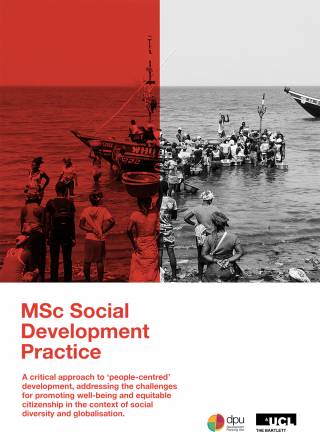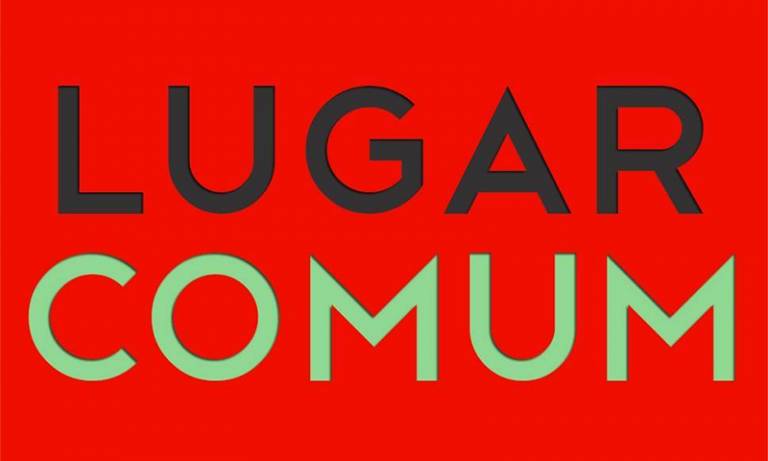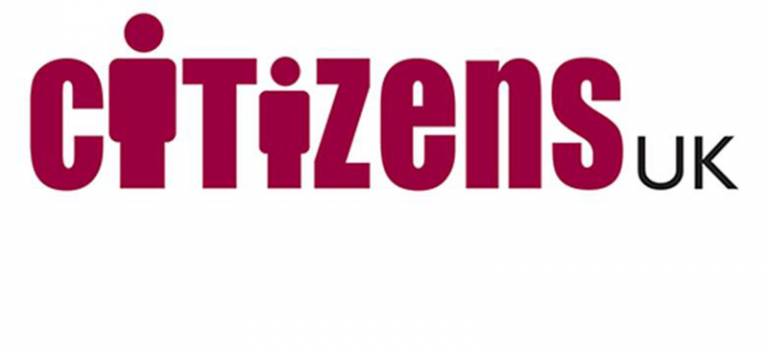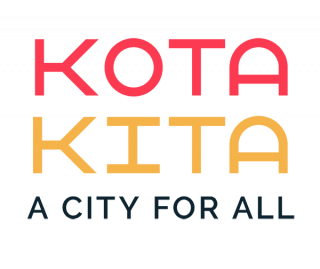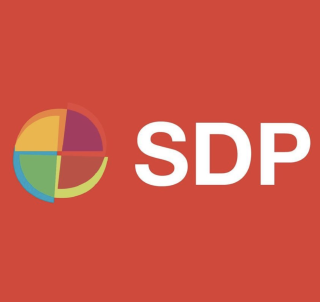The Social Development Practice MSc provides theoretical foundations and practical skills to address social development in the Global South - contexts often marked by inequality and social diversity
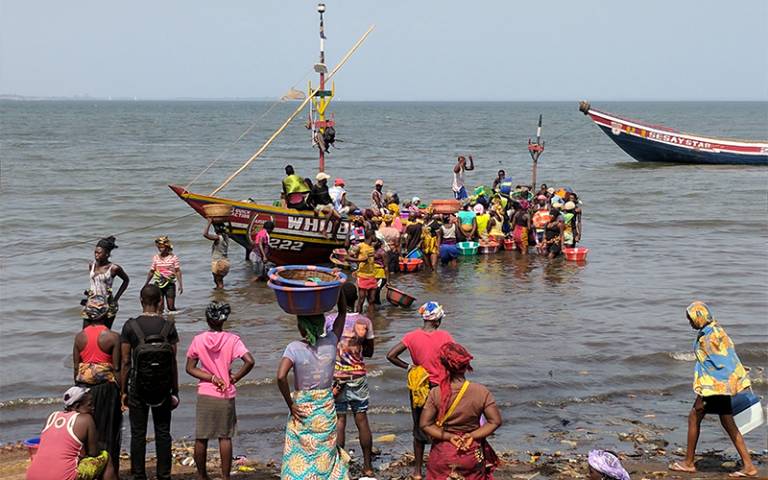
About the course
The Social Development Practice MSc explores processes of social change, mobilisation and development that can generate greater equity and wellbeing for people in developing contexts. It explores different approaches through which diverse and marginalised groups gain access to rights, resources and recognition.
Our course has two main objectives:
- To give students a solid grounding in social analysis skills and perspectives, rooted in social theory around identity, inequality and social change processes
- To provide an understanding of the role of the social development practitioner, and of how development interventions can best support the citizenship claims of people in the Global South.
We consolidate our students' by engaging them in practice within contexts reflective of real-life practice, characterised by diversity, inequality and conditions of uncertainty.
On this page
- Who should apply?
- Course structure
- Social development in practice
- Dissertations
- Careers and employability
- Staff
- More information
Who should apply?
The Social Development Practice MSc places emphasis on issues related to social diversity, citizenship, collective mobilisation strategies as well as on a range of (in)formal planning practices that can contribute towards more equitable city-making.
The Social Development Practice MSc attracts participants from a wide variety of disciplines including sociology, anthropology, international studies, history, communication studies, geography and psychology, and we welcome applications from graduates and practitioners from diverse disciplinary, cultural and geographical backgrounds with an interest in exploring action-oriented approaches and tools for socially inclusive, participatory, just, and sustainable development outcomes in urban contexts.
We also offer our students the options to either complete the course on a full-time basis over one year, or part-time over two years.
Course structure
The Social Development Practice MSc is an intensive course consisting of:
- Three core modules that are compulsory for all students (contributing a total of 90 credits to your overall degree);
- A choice of one or two optional modules (making up a total of 30 credits); and
- A dissertation report, where students can explore their own research interests (a total of 60 credits).
Our core modules provide the theoretical and methodological components of the course. Here, we introduce our students to the theoretical debates that underpin social development policy and practice generally, and poverty reduction specifically. Meanwhile, optional modules allow our students to examine different problems and approaches in accordance with their own particular interests.
The majority of teaching takes place in the first and second terms, allowing students to focus on preparing for and undertaking the practice engagement in the third term.
- Read more about our core modules
- Social Policy and Citizenship introduces a framework to analyse the social content of development policy, and uses this framework to evaluate the social, or socially sensitive, development policy models that have predominated in the different periods since the establishment of the United Nations and the Bretton Woods organisations in 1945. Here, we also explore how these policy arrangements are embedded in, and contribute to, wider citizenship arrangements, and we examine the roles of different actors from the public sector, the private sector and civil society and how their interactions can contribute to more active and inclusive models of citizenship in the context of an increasingly globalised society.
- Social Diversity, Inequality and Poverty explores social development beyond the confines of the ‘social sector,’ seeing it as an approach that attempts to put 'people' and social equity at the centre of development initiatives across all sectors. We emphasise that ‘people’ comprise heterogeneous groups and individuals with multiple, intersecting and changing identities
- Social Development in Practice is a practice-based module at the heart of the MSc programme. In this module we are concerned with exploring through practice the ways in which a socially sensitive approach can be integrated into development interventions in both northern and southern countries.
- Health, Social Justice and the City introduces key approaches, ideas and methodologies for the study of urban health with an emphasis on the Global South emerging scholarship.
- Read more about our optional modules
- NGOs and Social Transformation focuses on the practice and politics of development NGOs. It explores how different NGOs address issues of identity and diversity and the extent to which they are able to represent and be accountable to their constituency
- Communication, Technologies and Social Power aims to engage critically with a series of communication practices (such as participatory photography and video, theatre for development, and social media) that are used to support groups in processes of recognition and mobilization in the context of urban contestations.
Our students can also choose optional modules offered by other master's programmes at The Bartlett Development Planning Unit, or modules offered by other departments within UCL.
More details of these modules can be found in the UCL module catalogue.
Please note that the course structure and list of modules given here is indicative. This information is published a long time in advance of enrolment and module content and availability are subject to change.
Our teaching and learning approach
We deliver the Social Development Practice MSc through a range of lectures, seminars, workshops and tutorials in which our students are actively involved in activities such as discussions, debates, and presentations. We place a strong focus on learning through practice, particularly through our practice module, 'Social Development in Practice' where we embed our students understandings of social development through an overseas practice engagement.
Through the practice engagement, we challenge our students to work together in groups and engage proactively, reflexively, and with a great deal of independence in intensive and often challenging processes of action-research, in collaboration with communities and social development practitioners. In addition to acquiring specific thematic knowledge, students therefore develop transferable skills essential to a career in social development practice.
Social development in practice
Overseas practice engagement
Our practice module, 'Social Development in Practice' exposes our students to different case studies where you will interrogate methodological elements associated to the practice of social development. This module includes a compulsory overseas practice engagement project that takes place in the third term, and is a key integrating practice exercise that helps draw the various elements of the course together and demonstrates their utility and application to a real-life situation.
Our past overseas practice engagements have taken place in Indonesia, Brazil, Kenya and Tanzania. Discover more about our overseas practice engagements on our SDP overseas practice engagement page and read our students' personal reflections on the our 'Social Development in Practice' module through our student blog series, 'Reflection in Practice'.
Workshops
Social Development Practice MSc students also attend two key workshops in the first term of study.
- Development Workshop One and Two
At the start of the first term, this two-session workshop introduces our students to the current debates and issues surrounding the international development and planning, the character, causes and consequences of ‘development’ – economic, social, cultural and environmental – and how ‘planning’ interventions at global, national and local levels in urban and rural areas contribute to it. This is an interactive workshop where students actively discuss, formulate and present individual and collective responses to presentations, readings and arguments.
- Development Workshop Three: Development Planning in Practice
This is a three-day workshop held in London and also in the beautiful surroundings of Windsor Great Park. Through an innovative simulation of a development context in a city of the Global South, the workshop explores the motivations and interests of national and local government, civil society, slum dwellers, international aid agencies, financial institutions and private enterprises, and the ways in which negotiations between these different stakeholders can determine the creation of space for collaborative approaches to city development. The cost of transport, accommodation and meals will be met by The Bartlett Development Planning Unit.
Complete a research-based dissertation
In addition to the taught modules and practice engagements of the Social Development Practice MSc, you will complete a dissertation report contributing 60 credits to your overall degree. This dissertation will be on a topic selected by you, related to the core and optional modules you have studied courses studied, approved by your supervisor.
- Discover examples of recent students' dissertation topics
- Local indigenous knowledge for disaster risk reduction in Australia - A political ecology analysis using inclusive citizenship principles from Naila Kabeer
- Inclusive innovation for inclusive education: The case of educational provision for children with special needs in Indonesia
- Who chooses what, when? International development financing and spaces for participation
- Citizenship in the context of stop and search: An analysis using Foucault and Agamben
- The role of citizens in newcomer integration: Evidence from Germany
- Hegemonic masculinity and youth: Evaluating the relevance of a deeper consideration of masculinities in public policies
- Health justice, settler colonialism and policy: Analysing the intercultural health programme developed in Chile
- Meritocracy as inequality: A critical examination of Singapore's education policy
- Social production of habitat: towards an urban citizenship? The case of Mashimoni - Nairobi
- Disability, power and poverty: a relational approach to understanding disability-inclusive urban development
- Urban mobility as an integral part of citizenship: Examining transport inequality in Jakarta
- Participation and the promotion of inclusive cities in Chile: A strong tool to strengthen the citizen role.
Careers and employability
The Social Development Practice MSc focuses on linking an analysis of social development theory with the application of practical development methodologies. Our emphasis on social development in practice, specifically through our overseas practice engagement, is distinct from other master's courses specialising in social development, and particularly provides our students with 'on the ground' practical experience in supporting relationships between community groups and development actors - necessary for a career in international development.
Graduates of the Social Development Practice MSc have gone onto work a range of professions including:
- International NGOs, in both specialised social NGOs (for example NGOs concerned with gender equality, youth, or disability) and social roles in mainstream development NGOs
- Bilateral development agencies as social development specialists
- National government in positions related to social policy
- Private sector companies engaged in social appraisal, social research and consultancy
And many of our graduates have continued into PhD research.
What our alumni say
Watch the video from Social Development Practice MSc alumna Fátima to hear about her career trajectory since graduating from our course:
Watch the video from Social Development Practice MSc alumnus Ahmad to hear about his career trajectory since graduating from our course:
Additionally, you can learn about how three of our students, Anukie, María and Vero, created a social development consultancy together after meeting on the Social Development Practice MSc course in the blog 'Three SDP students on a joint journey'.
You can discover more career pathways after graduating from the Social Development Practice MSc from our alumni profiles on the DPU careers page.
Staff
The Social Development Practice MSc is taught by staff and associate teaching fellows across The Bartlett Development Planning Unit who are held in high esteem by their peers internationally and renowned for their contribution to academic thinking and development practice.
- Programme Leaders
Dr Andrea Rigon
View Andrea's profileProfessor Julian Walker
View Julian's profile- Graduate Teaching Assistant
Carmen Abouamra
- Teaching staff
Étienne von Bertrab
View Étienne's profile
Dr Afia AfenahDr. Jordana Ramalho
View Jordana's profile
 Close
Close


